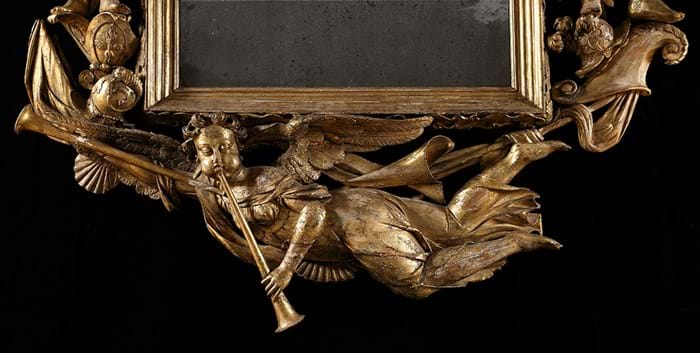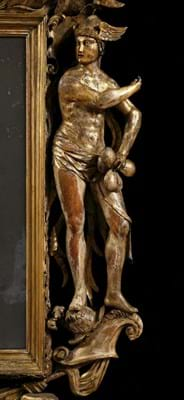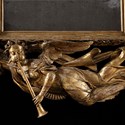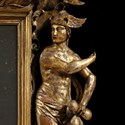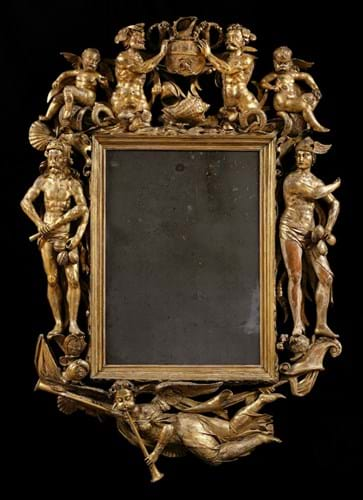
The naval trophy frame was bought by dealer Carlton Hobbs in France last year but once Fitzwilliam Museum director Tim Knox became aware of its connection to Cambridge, the museum began to raise funds to acquire it.
The museum has already raised 80% of the total £345,000 needed to return the Baroque treasure to East Anglia. It must secure the last £65,000 by the end of December.
Dealer Carlton Hobbs bought the frame in Paris and it is thought to have come from a home in the Loire Valley.
Knox said: “We believe it to be unknown to literature here. I think it has been out of Britain for a considerable time.”
Master woodcarvers
The 17th century carved gilded limewood frame bears the arms of the celebrated naval hero Admiral Edward Russell, (1653-1727), 1st Earl of Orford, Admiral of the Fleet. He commissioned it for his estate, Chippenham Park near Cambridge between 1692-97.
The carvers remain unknown, but Knox believes they were probably professional artisans employed by the Royal Dockyards in Deptford, south London.
The navy employed a permanent staff of highly skilled wood carvers for the decoration of ships such as Grinling Gibbons, a master woodcarver, who began his career in Deptford.
The frame is decorated with navy symbols including a pair of Tritons holding a shield bearing the arms of Edward Russell; two majestic full-length ancient gods either side, depicting Hercules and Mercury; and the god Fame, the personification of fame and renown, with two trumpets beneath.
It was made to honour his naval victories which included his triumph against the French at the double battle of Barfleur and La Hogue during 1692. With 126 ships it was more than twice the size of the Battle of Trafalgar.
Knox said these confrontations irreparably damaged the French Atlantic fleet and made the proposed invasion by Louis XIV impossible.
It was this victory that led to Russell’s promotion to Admiral of the Fleet in 1693, First Lord of the Admiralty in 1694 and creation as 1st Earl of Orford in 1697.
Donations can be made on the museum's website here.


